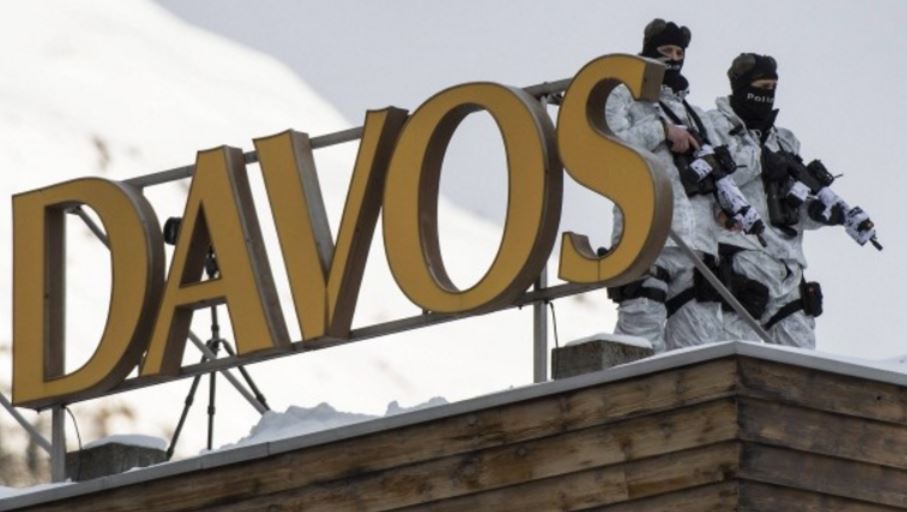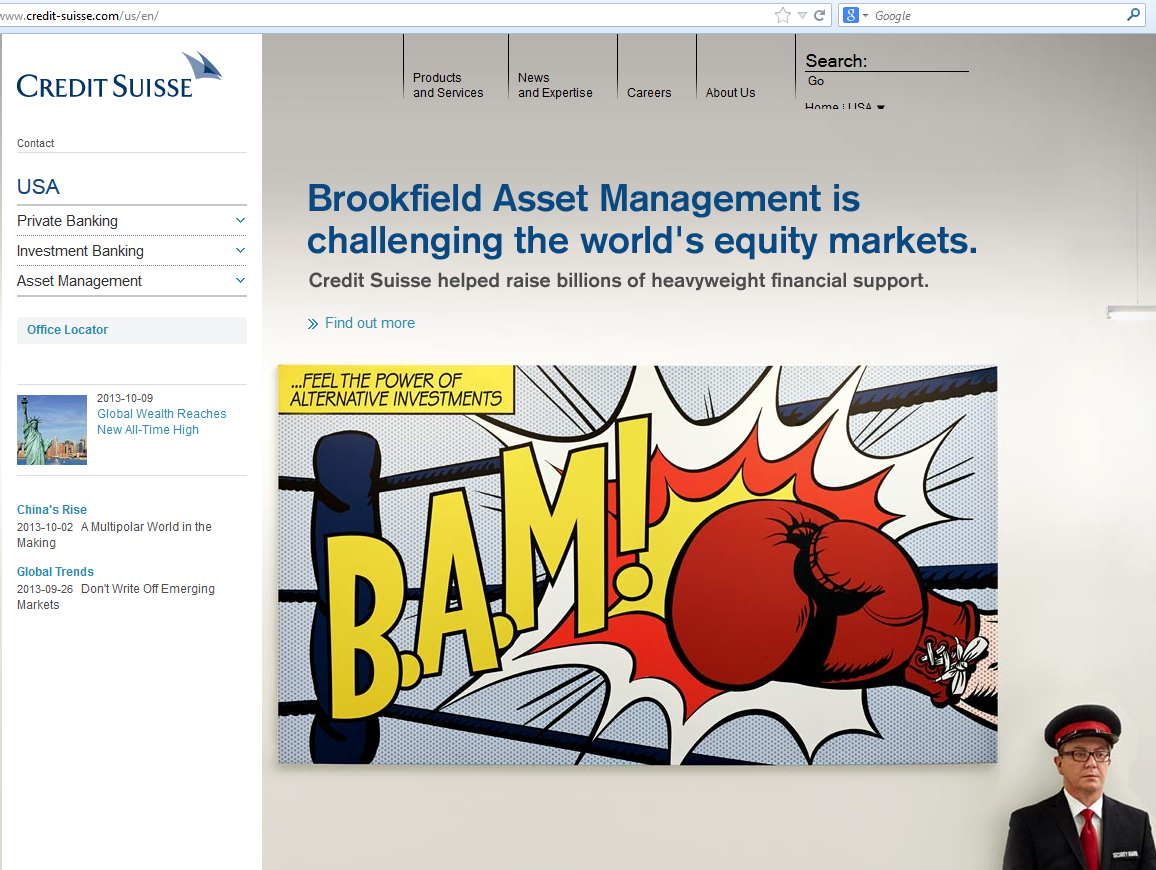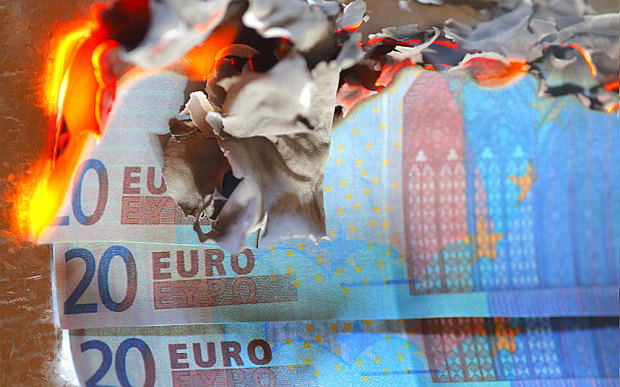Asset protection
…fears central bank veteran
“The situation is worse than it was in 2007. Our macroeconomic ammunition to fight downturns is essentially all used up,”
“new “bail-in” rules mean that any deposit holder above the guarantee of €100,000 will have to help pay for it.
“The only question is whether we are able to look reality in the eye and face what is coming in an orderly fashion, or whether it will be disorderly. Debt jubilees have been going on for 5,000 years, as far back as the Sumerians.”
Let me cut right to the chase: This year, the global financial markets … entire economies … and even political systems and philosophies — will spiral out of control.
So don’t kid yourself. The first two very wild weeks of the New Year didn’t constitute some isolated event. You’ll see plenty more action like that throughout the year, with some periods even crazier than we just saw.
We will hit the back wall of the financial hurricane that started in 2008. That part of the financial crisis when the governments of the world stepped in to try and save things, but which are now infected with an even worse disease: Debt-to-GDP ratios that over the next five years will bankrupt first Europe, then Japan and then, the United States.
 It won’t be pretty. It will affect everything you do. Everything you own. Every investment you make. Your lifestyle. Your children and grandchildren’s future.
It won’t be pretty. It will affect everything you do. Everything you own. Every investment you make. Your lifestyle. Your children and grandchildren’s future.
No, I am not being an alarmist or screaming fire in a packed theater. I am merely telling it like it is, for if you understand the forces that are now converging upon the world you will see the same things coming that I do.
Just take a look around:
– Financial markets are swinging wildly. Everything from stocks and bonds, to commodities are now on a roller coaster. Whenever that happens — especially after a period of relative calm like 2015’s markets — it means something big is coming.
Big moves that could destroy your wealth in a heartbeat. Or, big moves that you can capitalize on for big profits. The choice is yours.
– Entire economies are quaking. Europe is the worst of them. But there are problems in China (though they won’t derail China’s long-term growth). There are problems in Australia, Canada, Great Britain. In Brazil, Argentina, Mexico, Venezuela. In Russia.
And then there’s the Middle East, where countries are being kicked in the butt by plunging oil prices. Rising domestic unrest and terrorism.
– Even political systems are under stress. Third parties are rising in strength all over Europe. New Neo-Nazi groups. Separatist groups. Secession parties. Terrorist groups. Cultural clashes. Syrian refugee crisis. And more.
All part and parcel of the rising War Cycles that I’ve been warning you about, conditions that will not abate until at least the year 2020.
So why is all of this happening? Why will it get worse in the years ahead?
It’s actually very simple: You are witnessing the death of communism and Western-style socialism.
It is not the demise of capitalism, as so many think. It’s the opposite:
The death of big government. The death of the state taking care of you. The death of Keynesian economics.
The death of governments that are so indebted from fiscal mismanagement and making promises to you that they could never keep — that they are now waging financial repression against you …
While at the same time finding scapegoats in the form of other countries, other political systems and parties, to blame.
We are entering a crash and burn phase for government. Especially Western governments and their socialist and safety net experiments of the last several decades. Of their currency experiments, their trade wars, their inept policies, bureaucracies, tax systems and more.
It will manifest itself mostly in the sovereign bond markets of Europe and the United States, where interest rates started moving up — and bond prices started falling — even before Janet Yellen raised rates last month.
All the chickens will start coming home to roost, when the citizens of those countries … and investors everywhere … realize that the Emperors of Western socialized countries — their leaders and governments — really do have no clothes.
And then, nearly all markets will swing even more wildly than they are now.
I repeat: This is the first year of five years in total that will be a roller coaster ride through hell. And unless you start preparing now, it will gut your wealth.
My best advice right now:
First, stay out of U.S., Japanese and European government debt. No matter what anyone tells you, sovereign debt markets are soon going to become the biggest disasters of all time.
Second, steer clear of all foreign currencies. Stay mostly in dollars. I know it seems illogical, but it isn’t. As the global economy weakens and geo-political tensions domestically and internationally ramp ever higher, wreaking havoc in almost every corner of the globe …
More and more savvy money will flee to our shores and to the dollar — even as our bond markets tumble.
Third, build your own war chest, to go after the opportunities that are coming.
Some of the opportunities I see coming …
– A continued swoon in the Dow Industrials, to as low as 13,900 … and then a new run higher, to new record highs.
– A new, explosive bull market in precious metals and mining shares.
– Oil shocking everyone, soon bottoming and then soaring back to $50, if not higher.
The profit opportunities this year will simply be off the charts. It would be foolish not to go after them.
Best wishes,
Larry
About Larry Edelson:
Larry Edelson, one of the world’s foremost experts on gold and precious metals, is the editor of Real Wealth Report and Supercycle Trader.
Larry has called the ups and downs in the gold market time and again. As a result, he is often called upon by the media for his investing views. Larry has been featured on Bloomberg, Reuters and CNBC as well as The New York Times and New York Sun.
P.S. We are on the cusp of the most profitable bull market of our lifetime. Stocks will be driven higher by powerful global undercurrents that Wall Street will either ignore or fail to understand. As the Dow doubles, some stocks will see explosive gains of 300%, 400%, 500% and more. Savvy investors who make the right moves will become very rich!
Click here for my free report and to find out how it could make you rich beyond your dreams.

The most telling sign that we are headed into a real political-economic shit storm is the fact that “TRUST” is collapsing on all sides. Every chance Obama gets he wants to disarm Americans. Why? This is simply because government is in trouble and they no longer “trust” the people. Likewise, the “rich” are starting to withdraw their money from investment that would create jobs because they too are worried about the rising discontent among the majority of the population. Then we have the collapse in
trust” among the people of anyone who is a career politician. So welcome to the theme of Davos – the collapse in “trust”.
…related from Martin:
The Refugee Crisis is Tearing Europe Apart
“a major reason why I’m so optimistic about the future”
 Eight centuries ago as Marco Polo traveled across the vast dominion of the Mongolian Empire, he encountered what few westerners had ever seen.
Eight centuries ago as Marco Polo traveled across the vast dominion of the Mongolian Empire, he encountered what few westerners had ever seen.
One of those astonishing experiences was how the Mongols happily and willingly used paper currency.
Marco Polo was so intrigued by this that he devoted an entire chapter in his famous diaries to the Mongolian monetary system.
Back then, Kublai Khan’s imperial mint was located in the city of Kanbalu, part of modern day Beijing.
Polo describes the ritualistic process of how these Chinese “alchemists” produced paper money “with as much form and ceremony as if it were actually of pure gold and silver.”
This was a major novelty for Polo.
Back in Europe where he had come from, gold coins like ducats and florins circulated across the continent as the standard international reserve currency.
But it wasn’t just the use of paper money that was so surprising for Marco Polo; it was how willing people were to use it.
As he writes in his diaries, “in most states, the issue of government paper is the resource of an exhausted treasury.”
In Polo’s experience, only bankrupt nations issued paper money.
But in the Khan’s empire, the economy was healthy and robust, and people had tremendous confidence in their paper currency.
It lasted for more than a century, but eventually they printed far too much money, confidence eroded, and the system collapsed.
The collapse was so severe that one deposed Mughal ruler was actually charged with inflicting paper currency on to his people.
So just like every other experiment with paper money in the history of the world, it ultimately failed.
Today paper money is somewhat of a rarity; it and all financial transactions have now become digital.
Your bank balances and credit card transactions are all merely accounting entries stored in electronic databases.
There are very few pieces of paper circulating in the monetary system anymore.
But the basic concept remains the same as it did in the Mongolian Empire: unelected bureaucrats wield totalitarian control over the money supply, creating and destroying money at will.
Money is one of the most important social technologies in history.
Like language or even the Internet, money is something that we all use regularly.
It’s a sad testament to modern humanity that the framework we have selected for this critical social technology is based on a failed model from eight centuries ago.
You’d think that with all the other technology we have at our disposal, money would have been brought into the digital age by now.
Well, in the private sector, it has.
Two of the most important developments in the history of money have recently emerged over the last few years– the Blockchain, and Peer-to-Peer (P2P) platforms.
The Blockchain is revolutionary.
It provides a way to for any data or information to be stored electronically and distributed across the entire user base.
If you’ve ever used a file-sharing application, you’ve seen this in action.
You’re essentially downloading bits and pieces of your favorite movie from dozens, perhaps hundreds of other users who have installed the same software.
The Blockchain has some similarities in that it stores encrypted data with anyone who has installed the software.
Right now that data primarily consists of bitcoin transactions.
But the Blockchain could be used for anything– financial records, property title, stock certificates, bonds, business contract– just about anything.
The second major idea is Peer to Peer transactions.
Centuries ago, banks were vital components of the financial system.
They facilitated trade and commerce by acting as a financial middleman who made loans with their depositors’ money.
That function may have been useful in the past. But now it’s no longer necessary to have a bank in the middle of all financial transactions.
Rather than using a bank, today there are several P2P platforms that can directly match up savers and borrowers, completely cutting out the financial intermediary.
If you want to borrow money to start a business, buy a car, or even a house, you no longer need a bank. You can crowdsource it online.
P2P technology has been applied to so much else; AirBnB is essentially a P2P platform that matches up travelers with homeowners. Uber is the same with vehicles.
The key idea of both of these developments is that they cut out the central authority like a bank or government.
Needless to say, the people in charge don’t like this.
Yesterday a Russian minister told the media that Bitcoin “will represent a real threat to the financial stability of the state.”
But no matter what they do, the power now is trending towards the users. The individual. Not the bureaucracy.
This is a major reason why I’m so optimistic about the future.
There’s an incredible amount of risk in the financial system right now. Governments all over the world are broke, central banks are borderline insolvent, many commercial banking systems are dangerously undercapitalized.
The currency wars are back, and currencies are being devalued everywhere.
Debt bubbles are starting to burst, and economic growth worldwide is grinding to a halt.
This is clearly not a consequence-free environment and requires some rational, sensible steps to protect yourself.
But here’s the bright side: no matter how pitifully the people in charge screw things up, in the end, they’ll always lose.
If some politician decides to ban firearms tomorrow morning, we now have the ability to 3D print them.
If they continue to snoop and spy on our emails, we now have state of the art encryption technology that would take them centuries to break.
Even if they try to flip the Internet kill switch, we have mesh network technology to ensure that we stay connected.
No matter how hard they try, they’ll never be able to contain the extraordinary technological developments that propel humanity ever upward.
Have a great weekend,
Simon Black
Founder, SovereignMan.com
“Alternative Investments” were the Holy Grail. They promised big returns that would be independent from the gyrations of the stock and bond markets. Hedge Funds and Private Equity firms marketed them to wealthy individuals and institutional investors, such as pension funds.
“Feel the power of Alternative Investments – B.A.M.” That’s how Credit Suisse advertised it on its website back in October 2013. It was so irresistible that I took a screenshot of the ad, to be used at an opportune moment, and now is that moment:

















